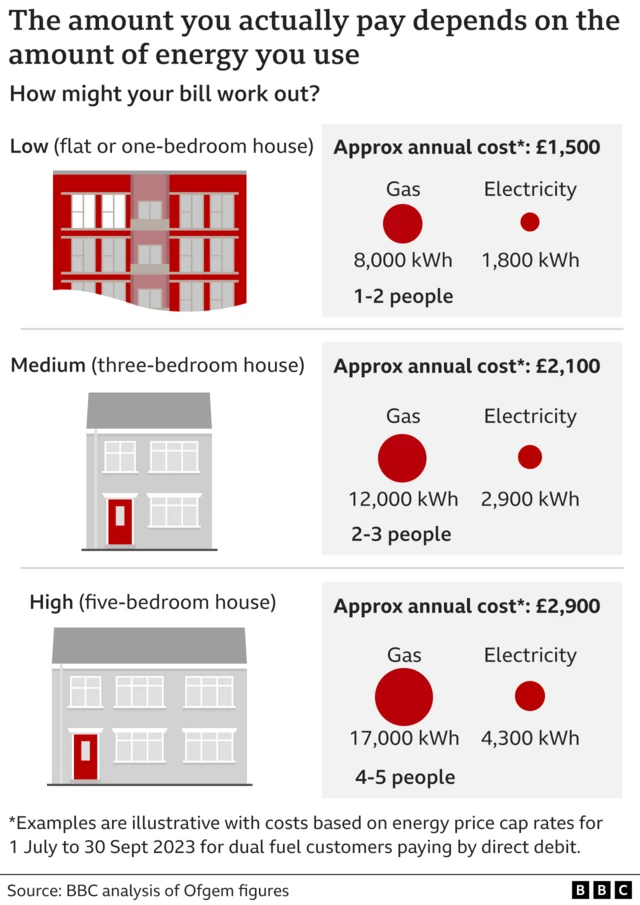What's been happening today?published at 13:59 BST 25 May 2023
 Nathan Williams
Nathan Williams
Live reporter
We'll soon be closing our live coverage that was focussed on the cost of energy. But before we go, here's a reminder of what happened today:
- New price cap: Energy bills will fall to £2,074 a year for the typical households in England, Scotland and Wales
- Who pays what?: About 29 million households will be affected by the change. To see what you could be paying from July, take a look at our earlier post here
- Market stabilising: Ofgem boss Jonathan Brearley said the announcement is a sign the market is stabilising, but it's unlikely prices will return to what they were before the energy crisis
- Major milestone: PM Rishi Sunak said the fall "marks a major milestone in our work to halve inflation"
- Labour reaction: Shadow Climate Change Secretary Ed Miliband said energy costs will still be nearly double what they were 18 months ago
- Support: Citizens Advice say that while the price cap offers some respite, more government support "will be needed in the future for struggling households"
Today's coverage was written by Victoria Lindrea, Anna Boyd, Dearbail Jordan, Jen Meierhans, Kevin Peachy, Adam Durbin and Aoife Walsh.
It was edited by Emma Owen and myself.
If you want to read more, you can find our news story here.
Plus there's more on the energy price cap here.
And you can find out more about cost-of-living support here.








